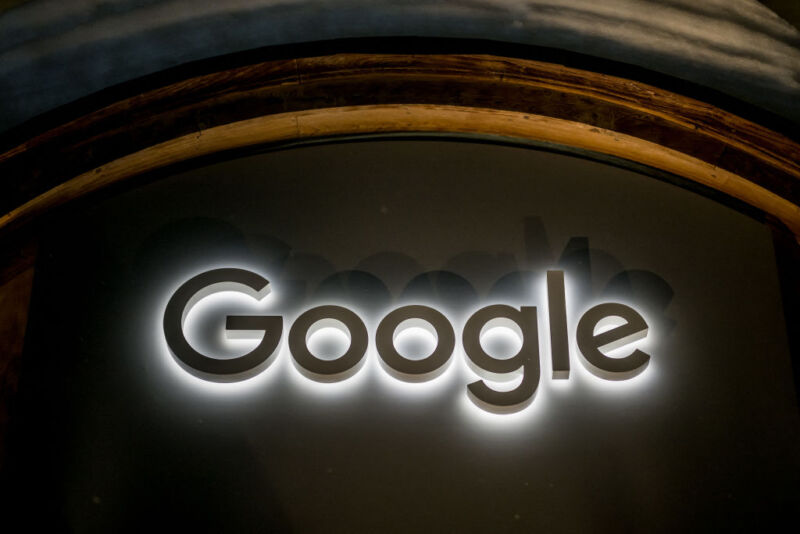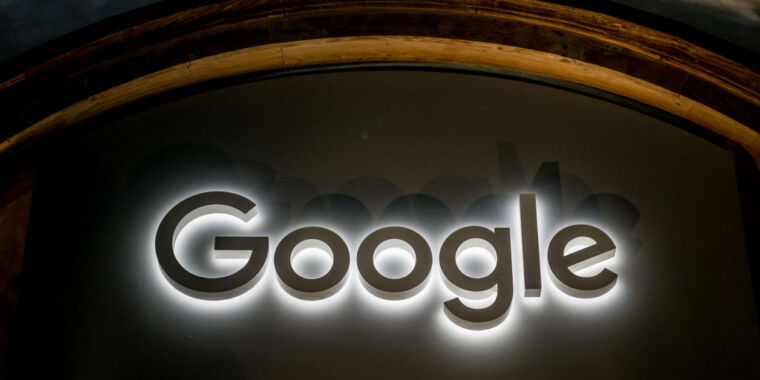Google loses DOJ’s big monopoly trial over search business
Huge loss for Google —
Google’s exclusive deals maintained monopolies in two markets, judge ruled.

Google just lost a massive antitrust trial over its sprawling search business, as US district judge Amit Mehta released his ruling, showing that he sided with the US Department of Justice in the case that could disrupt how billions of people search the web.
“Google is a monopolist, and it has acted as one to maintain its monopoly,” Mehta wrote in his opinion. “It has violated Section 2 of the Sherman Act.”
The verdict will likely come as a shock to Google, which had long argued that punishing Google for being the best in search would be “unprecedented” and frequently pointed to the DOJ’s lack of direct evidence. However, Mehta found the limited direct evidence compelling, especially “Google’s admission that it does not ‘consider whether users will go to other specific search providers (general or otherwise) if it introduces a change to its Search product.'”
“Google’s indifference is unsurprising,” Mehta wrote. “In 2020, Google conducted a quality degradation study, which showed that it would not lose search revenue if were to significantly reduce the quality of its search product. Just as the power to raise price ‘when it is desired to do so’ is proof of monopoly power, so too is the ability to degrade product quality without concern of losing consumers.”
He also wrote that the DOJ’s indirect evidence “easily establishes Google’s monopoly power in search” and concluded that “the fact that Google makes product changes without concern that its users might go elsewhere is something only a firm with monopoly power could do.”
Google didn’t lose every battle in this big fight with the DOJ. Mehta ruled that Google did not have monopoly power in search advertising, agreed that there was no market for general search advertising, and declined to sanction Google for allegedly destroying evidence by “failing to preserve its employees’ chat messages.”
Google’s president of global affairs, Kent Walker, provided a statement to Ars, confirming that Google plans to appeal.
“This decision recognizes that Google offers the best search engine, but concludes that we shouldn’t be allowed to make it easily available,” Walker said. “We appreciate the Court’s finding that Google is ‘the industry’s highest quality search engine, which has earned Google the trust of hundreds of millions of daily users,’ that Google ‘has long been the best search engine, particularly on mobile devices,’ ‘has continued to innovate in search,’ and that ‘Apple and Mozilla occasionally assess Google’s search quality relative to its rivals and find Google’s to be superior.’ Given this, and that people are increasingly looking for information in more and more ways, we plan to appeal. As this process continues, we will remain focused on making products that people find helpful and easy to use.”
Google monopolizes two markets, judge ruled
Mehta ruled that Google spending billions on exclusive distribution agreements with companies like Apple helped the tech giant maintain monopolies in two markets, general search services and general text advertising.
The US government had argued that Google used these exclusive deals to block out competitors like Bing or DuckDuckGo, “by ensuring that all of Android and Apple and mobile users are offered Google, either as the default general search engine or the only general search engine, Google’s deals with Android and Apple clearly have a significant effect in preserving its monopoly.” The DOJ successfully argued that blocks rivals from reaching the “critical level necessary” to “pose a real threat to Google’s monopoly.”
Mehta noted that Google’s dominance had “gone unchallenged for well over a decade,” partly due to a “largely unseen advantage over its rivals: default distribution.” He found that Google’s exclusive distribution deals foreclosed a “substantial share” of the markets and allowed Google to earn more revenues. Google then shared spiking revenues with device and browser developers—spending up to $26 billion in 2021 alone for exclusive deals, the trial revealed.
Google did all this, Mehta said, to ensure that “most devices in the United States come preloaded exclusively with Google” and to force “Google’s rivals to find other ways to reach users.” The DOJ successfully argued that this posed “significant barriers that protect Google’s market dominance in general search,” with rivals having to overcome “high capital costs—”to the tune of billions of dollars,” Mehta wrote—”Google’s control of key distribution channels, brand recognition, and scale.”
Barriers to entry in general text advertising are similarly “high,” Mehta said, with new entrants facing “the same major obstacles as would the developer of a new” search engine.
One of the most scrutinized exclusive deals was between Google and Apple, which was estimated at $20 billion in 2022. “This is nearly double the payment made in 2020,” Mehta noted, suggesting that Google increasingly valued the deal locking its search engine as the default in Safari as a way to shore up its search dominance.
“Google has long recognized that, if Apple were to develop and deploy its own search engine as the default” search tool “in Safari, it would come at great cost to Google,” Mehta wrote. Without the deal, Google “would lose around 65 percent of its revenue, even assuming that it could retain some users without the Safari default” placement. But “Apple has decided not to enter general search,” Mehta said, likely because it “would forego significant revenues” and potentially face user backlash if it stopped partnering with Google. Similarly high revenue loss would occur if “Google were to lose the Android defaults,” Mehta said.
None of the pro-competitive benefits that Google claimed justified the exclusive deals persuaded Mehta, who ruled that “importantly,” Google “exercised its monopoly power by charging supracompetitive prices for general search text ads”—and thus earned “monopoly profits.”
“That Google makes changes to its text ads auctions without considering its rivals’ prices is something that only a firm with monopoly power is able to do,” Mehta wrote. And “Google in fact has profitably raised prices substantially above the competitive level. That makes ‘the existence of monopoly power” “clear.”
Ultimately, Mehta ruled that “Google has no true competitor” in general search and without any “genuine” competition, “over the last decade, Google’s grip on the market has only grown stronger.” Further, he found that “Google understands there is no genuine competition for the defaults because it knows that its partners cannot afford to go elsewhere,” disagreeing with Google’s arguments that the default deals were not exclusive.
“The key question then is this: Do Google’s exclusive distribution contracts reasonably appear capable of significantly contributing to maintaining Google’s monopoly power in the general search services market?” Mehta wrote. “The answer is ‘yes.'”
This is a developing story and is being updated.
Google loses DOJ’s big monopoly trial over search business Read More »






